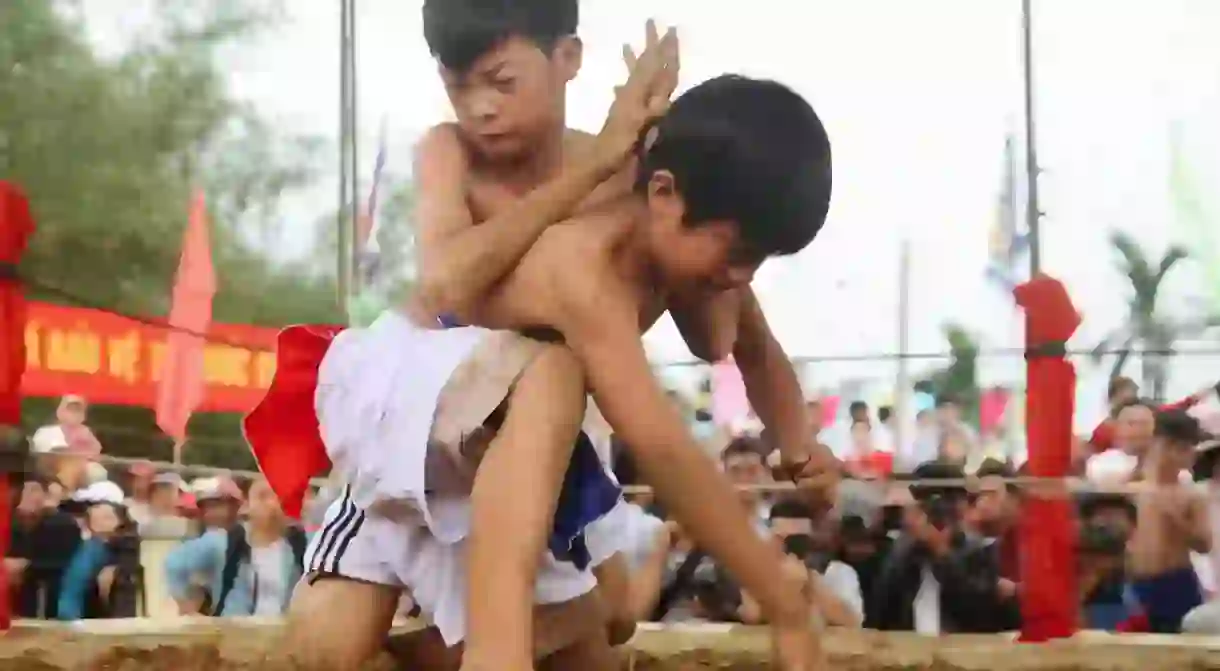Smackdown: The World of Vietnamese Wrestling

Đấu Vật, or traditional Vietnamese wrestling, has been around for more than 1,000 years. The ancient martial art is practiced throughout the nation and those who compete are widely revered. Often times the spectacle balances a fine line between sport and art — it’s unlike any other form of fighting in Southeast Asia.
History
The history of this ancient art has been passed down from one generation to the next, with little or no existing primary evidence to point to its exact origins. Legend has it that a millennia ago, a farmer by the name of Mr Đoàn ran from his fields to aid family and friends as a flood consumed the land. As he approached a village, he found a glowing sword and realized that a godly gift had been bestowed upon him. War roiled the nation and he became a fierce warrior capable of the supernatural. His gift was recognized and he soon taught and passed on his combat skills, ensuring the survival of the nation.




The festivals
The Sinh Village Đấu Vật festival takes place during the first lunar month of each year, drawing nearly 100 competitors and thousands of spectators. Located in the country’s central Thừa Thiên-Huế province, the events have been held locally since the 15th century and are supposed to bring good luck throughout the region. Fights take place on a half hectare of land in the village center and consist of two age brackets: adolescent and youth.





The rules
Đấu Vật is a fast-paced, tactical form of martial arts and contests consist of a number of very brief, aggressive rounds. The goal is to tackle or throw your opponent to the ground so he lies chest up on the sand or plastic. Striking is against the rules and the sport instead focuses on grappling. Each fighter in a festival will compete in at least six bouts and the overall winner is awarded a small amount of cash, yet more importantly honor and prosperity for his family.






The spectacle
Bouts are announced by the repeated boom of a drum, drawing attention from spectators. A warm-up, usually two to three minutes long, resembling a choreographed dance occurs. Competitors shake hands and the drum beats once more. Their hands fall to their hips and pleasantries fall away. As the fight begins the drum continues to beat, the rhythm reflecting the action. Faster means a hold has been set in place, slower when danger has passed. A rapid pace is for when a competitor falls, while a lone boom is for when the match has been decided.


















